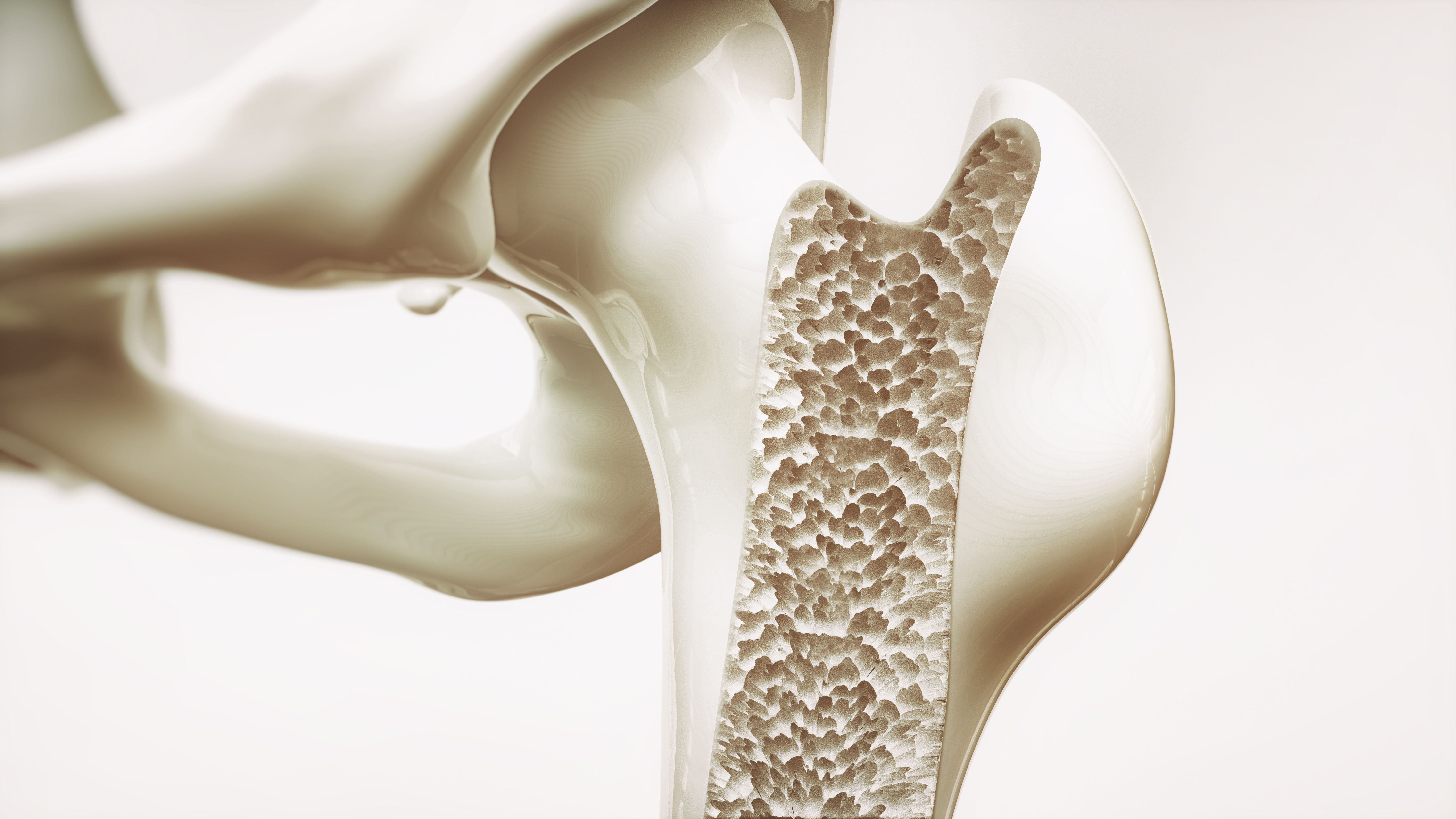- Bone Health
- Immunology
- Hematology
- Respiratory
- Dermatology
- Diabetes
- Gastroenterology
- Neurology
- Oncology
- Ophthalmology
- Rare Disease
- Rheumatology
Review Confirms Clinical Safety of Sandoz Denosumab Biosimilar vs Originator
Sandoz's biosimilar denosumab (Jubbonti/Wyost) has demonstrated analytical, pharmacokinetic, pharmacodynamic, and clinical equivalence to reference denosumab (Prolia/Xgeva), supporting its approval and extrapolation to all approved indications.
Sandoz's biosimilar denosumab (Jubbonti/Wyost; denosumab-bddz) has demonstrated analytical, pharmacokinetic (PK), pharmacodynamic (PD), and clinical equivalence to the reference denosumab (Prolia/Xgeva), justifying its approval and extrapolation to all indications, according to a study published in Clinical Therapeutics.1
The narrative review summarized the totality of evidence for denosumab-bddz that led to the FDA decision to approve the product. Jubbonti and Wyost were approved in March 2024 for the treatment of osteoporosis and bone metastases, respectively.2
Jubbonti and Wyost were approved in March 2024 for the treatment of osteoporosis and bone metastases, respectively. | Image credit: crevis - stock.adobe.com

Denosumab, a monoclonal antibody targeting RANKL, is a key therapy for conditions like osteoporosis and metastatic bone disease, working by inhibiting osteoclast activity to reduce bone resorption and preserve bone density. The reference denosumab (Prolia/Xgeva) has shown robust efficacy in clinical trials, including the FREEDOM and ADAMO studies, but its high cost has limited patient access globally and contributed to undertreatment in osteoporosis despite the significant burden of fractures and skeletal-related events.
Jubbonti/Wyost, which were also approved in the European Union and Canada, offers a more affordable alternative that matches the reference product in analytical, functional, and clinical outcomes, as demonstrated by rigorous development and regulatory evaluation. Designated as interchangeable by the FDA, the biosimilar could provide an opportunity to improve access, support health care system sustainability, and meet the unmet need for cost-effective treatment options, with evidence supporting its extrapolation to all approved indications of the reference denosumab.
The researchers conducted comprehensive analytical characterization to compare denosumab-bddz’s molecular structure, binding potencies, variants, and degradation pathways to reference denosumab across multiple batches. Impurities and degradation were analyzed, with similarity assessed using validated, reproducible methods. Clinical evaluations included a phase 1 trial in healthy males comparing denosumab-bddz to EU- and US-sourced Xgeva and a phase 3 study in postmenopausal women comparing denosumab-bddz to EU-sourced Prolia, confirming clinical equivalence.
The results confirmed the high similarity between the biosimilar and reference denosumab. Analytical evaluations demonstrated that denosumab-bddz shared key quality attributes with the originator, including over 98% purity and lower levels of aggregates and antibody fragments. Its structural and chemical properties, such as molecular mass, amino acid sequence, glycation, and N-glycosylation patterns, were highly comparable, with minor differences deemed clinically irrelevant. Oxidation and deamidation levels of denosumab-bddz were lower than those of the reference product, supporting stability. Disulfide bridges and free thiols were consistent with acceptable ranges, while functional glycan species were also comparable. These differences in glycation, disulfide, and N-glycosylation variants did not impact clinical performance or potency.
Functionally, denosumab-bddz displayed equivalent binding affinity to RANKL and other receptors, with consistent neutralizing activity. Variants related to size and charge were within acceptable ranges and did not affect stability or potency. The manufacturing process ensured consistent high purity, effective impurity removal, and microbial control, while stability assessments confirmed robustness under stress conditions comparable to the originator.
Clinically, a phase 1 study conducted in 502 healthy males demonstrated PK, PD, safety, and immunogenicity equivalence between the products. A phase 3 study in 527 postmenopausal women with osteoporosis confirmed similar efficacy, PK, PD, safety, and immunogenicity over 52 weeks, with no adverse effects from switching between the products. Pharmacokinetic endpoints were within prespecified equivalence margins.
The authors concluded, “The justified extrapolation of evidence for the equivalence of [denosumab-bddz] to [Xgeva] in the studied populations to other indicated populations, has the potential to lower development costs, reduce the number of clinical trials needed, and expedite the time to regulatory approval. Based on current evidence, [denosumab-bddz] is anticipated to be easily incorporated into the current treatment pathway.”
References
1. Vogg B, Poetzl J, Schwebig A, et al. The totality of evidence for SDZ-deno: a biosimilar to reference denosumab. Clin Ther. 2024;46(11):916-926. doi:10.1016/j.clinthera.2024.08.007
2. Jeremias S. FDA approves first denosumab biosimilars. The Center for Biosimilars®.March 5, 2024. Accessed December 5, 2024. https://www.centerforbiosimilars.com/view/fda-approves-first-denosumab-biosimilar
Newsletter
Where clinical, regulatory, and economic perspectives converge—sign up for Center for Biosimilars® emails to get expert insights on emerging treatment paradigms, biosimilar policy, and real-world outcomes that shape patient care.
